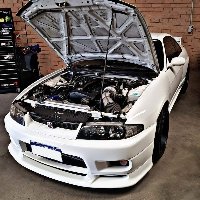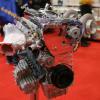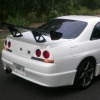Performance Car / Engine Related Invention And/or Gadget?
Announcements
-
Similar Content
-
Latest Posts
-
Read the ECU for fault codes or have someone else do it. A faulty coolant temperature sender is usually listed in ECUs. If the sensor itself is not busted it can also be a bad ground connection. Or in a really unlucky case, damaged wiring.
-
Can't be a Futjitsubo as those are made with a flex piece and Reimax is smaller in pipe diameter. If anything it is closest to a Mines pipe, but evidently it is not an actual Mines pipe. Classic word humor
-
Alright I will try to not forget. As GTSboy replied to you already, problem is mainly the mismatch between the actual exhaust part and the denomination in the papers. That basically just looks like tampering to a cop, if they were to check your car and notice. If it had been done right they would have clarified it to be a custom pipe and just given it a certain part number that you have to engrave or weld onto the pipe. I will definitely inquire on what to do. Changing the pipe wouldn't be my favorite solution as it costs a bunch of money and the cat was fitted with the front pipe and exhaust under the car, and if the front pipe flange does not sit in the OEM location the cat will need to be refit for any other pipe to work. It also usually doesn't need a brand name or something like that, but more something like a part number. Usually for exhaust parts, on silencers and cat units specifically, there is a badge that reads the certificate number that belongs to these exhaust parts under EU regulation. You get these numbers after you put a part or group of parts through the tedious testing according to EU vehicle legislation and they pass. You can find these "part numbers" on various parts throughout a EU vehicle. On windows, headlights, engine parts, seat belts and so on. All these parts have gone through standardized testing and acquired a so called ECE or EG Certificate that makes them legal to use by themselves in all countries that adhere to these standards. You can also not alter these parts in any way, if you do they become illegal. An example for stampings on an exterior lighting part, the people who need to know can find the documentation for this unit in a database. I do not know what all the standards and so on mean.
-
If that was the case I suppose you could call it "Mein's" brand.... ... I'll see myself out... 😅
-







Recommended Posts
Create an account or sign in to comment
You need to be a member in order to leave a comment
Create an account
Sign up for a new account in our community. It's easy!
Register a new accountSign in
Already have an account? Sign in here.
Sign In Now